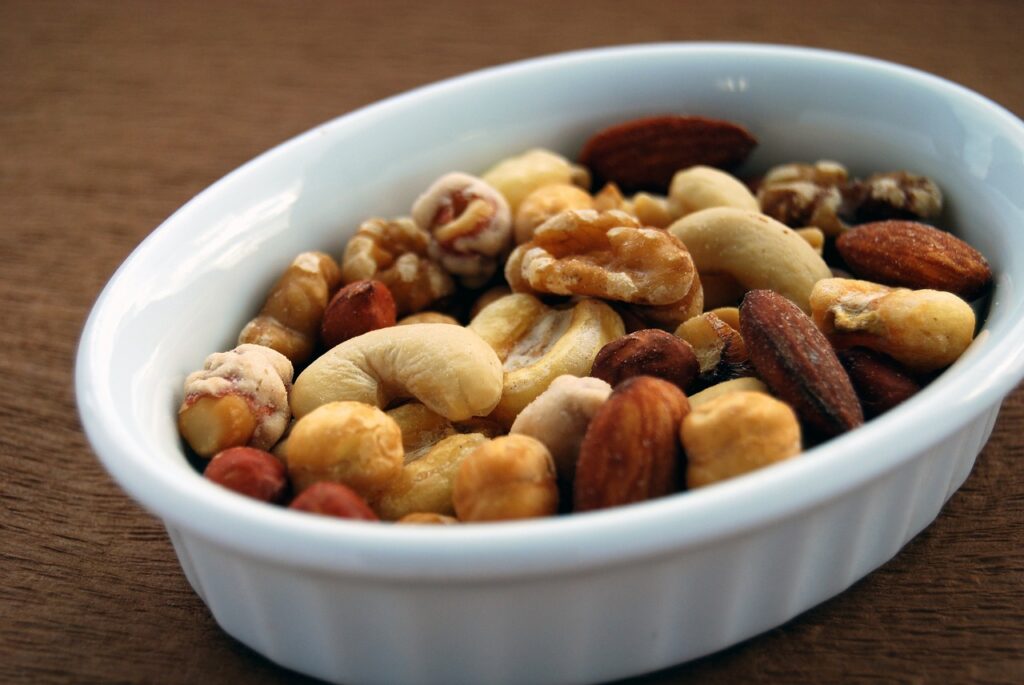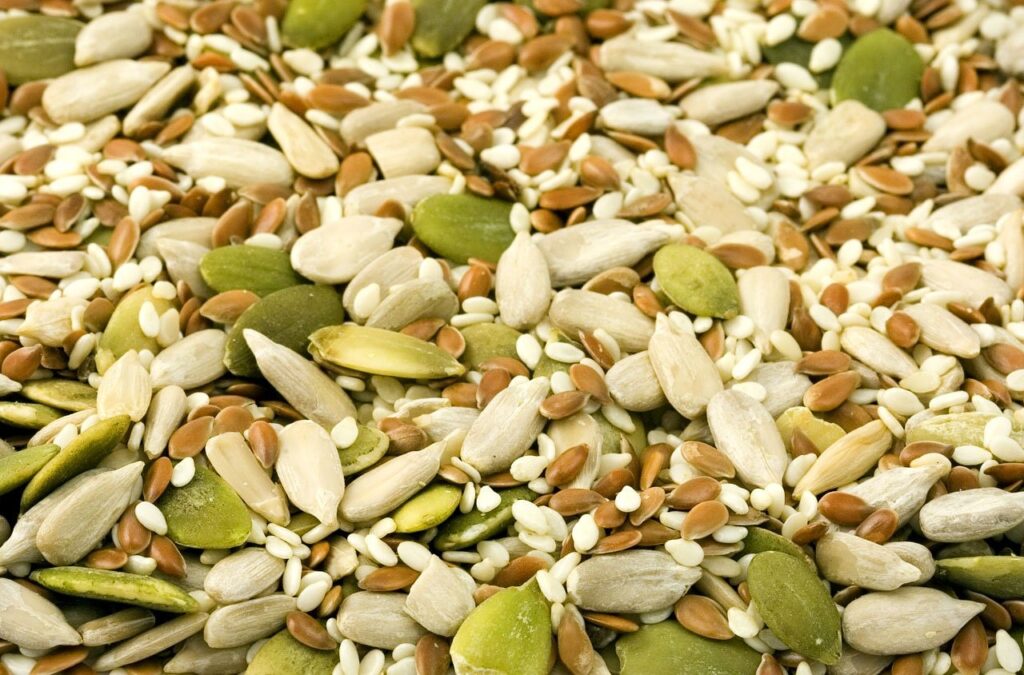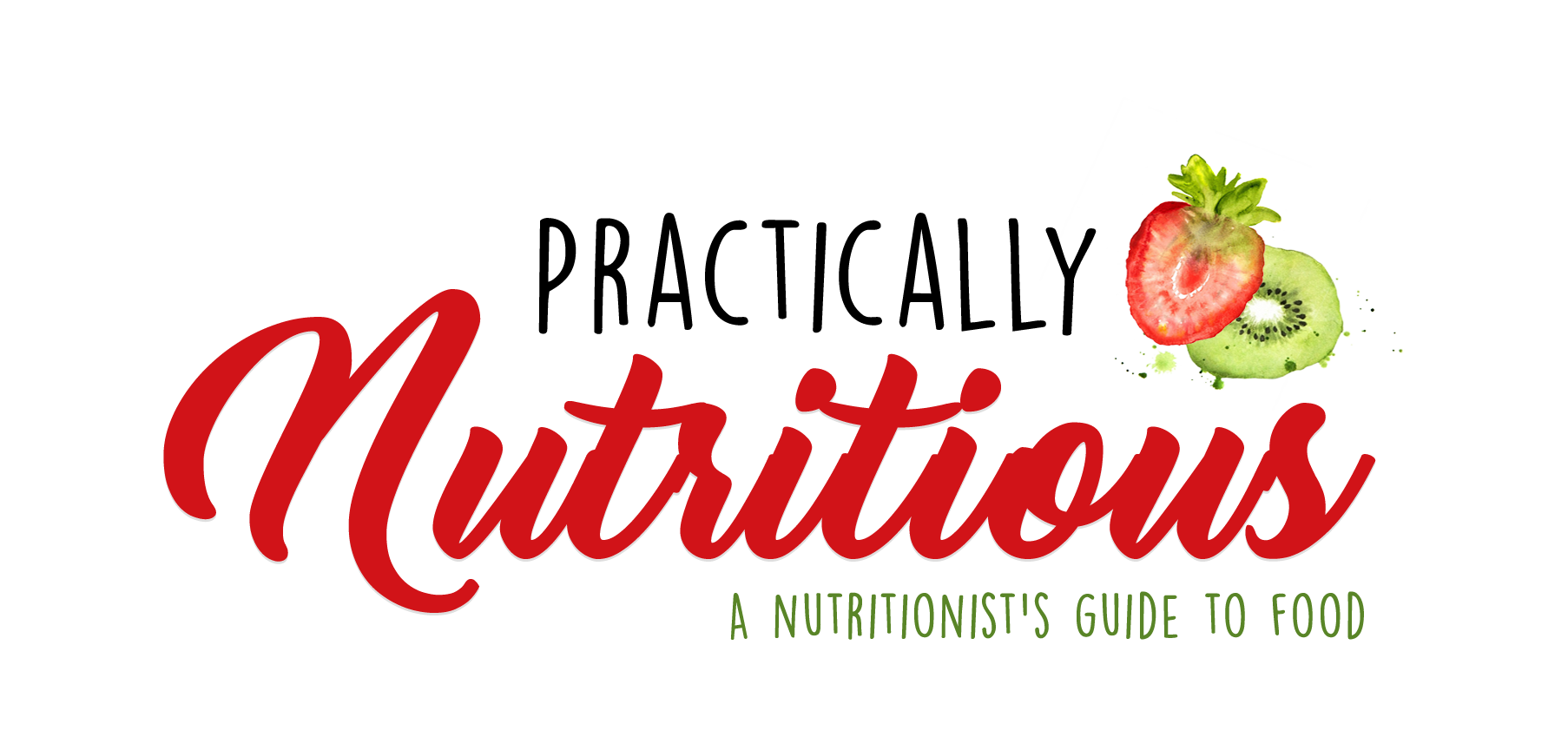I had a professor once who loved talking about how great nuts are. She told us that of all of the foods we could recommend to clients, nuts should be at the top of the list. Why did she think so highly of them? A lot of research has shown that nuts really are some of the most healthy foods out there. Let’s discover why.

What are nuts?
A nut is an edible seed surrounded by a hard shell. Usually nuts are the seeds of trees, although peanuts are the seeds of a legume. Most food scientists would agree that nuts are different from other seeds such as grains and legumes in three main ways: they are larger, higher in oil, and do not require much cooking to be eaten. Because they are high in oil, nuts can also be made into nut butters like peanut butter and almond butter. Nuts and nut products are especially nutritious and have been an important source of food for humans for millennia.
The health benefits of nuts
From what you read so far you could probably tell nuts are incredibly nutritious. In fact, a recent BBC article on the world’s most nutritious foods listed almonds at number 1. But what makes them so good for you? Let’s first discuss what types of nutrients nuts contain:
- Protein: Canada’s Food Guide recommends nuts as a healthy source of protein. One handful of nuts (about a quarter cup) will give you between 3 and 7 grams of protein.
- Fibre: nuts are a good source of fibre, which will help keep you full. In fact, studies have found that adding a handful of nuts to one’s daily diet doesn’t have a noticeable effect on weight, and it’s theorized that this is because nuts are satiating and lead to lower intake of other foods.
- Fat: nuts are high in “good” kinds of fat, ones that may help curb heart disease. These are called unsaturated fats, specifically monounsaturated and polyunsaturated fats. Both types are good for you and are present in varying levels in different types of nuts.
- Vitamins and minerals: each type of nut has a slightly different nutritional profile, but all of them are a good source of certain vitamins and minerals. Hazelnuts and almonds contain high levels of vitamin E, which is both a vitamin and an antioxidant. Peanuts and pecans are rich in B vitamins, while walnuts are rich in folate.
All of these nutrients put together seem to give nuts amazing potential when it comes to preventing and even treating certain health issues. Research has found that daily intake of nuts (about a handful per day) reduces the risk of heart disease, lowers “bad” cholesterol, and increases “good” cholesterol. Long-term consumption of nuts has been found to reduce the risk of some cancers. Lastly, some types of nuts have been found to help control blood sugar in diabetes.
What about seeds?

Botanically, seeds are different from nuts in that they are the seeds of vegetables (ex: pumpkin), flowers (sunflower), or other plants (flax, chia, hemp). Nutritionally, they are actually fairly similar to nuts. They are high in protein, fibre, healthy fats, vitamins and minerals, which makes them great for improving and maintaining health.
How much nuts and seeds should I eat?
Studies show that as little as 10 grams of nuts can help reduce the risk of heart disease. Some studies went as high as 100 grams, and this too had beneficial health effects. Overall, it seems best to stick to 30-60 grams per day, which translates into 1-2 handfuls or about 1/2 cup maximum of nuts and seeds. This amount will allow you to reap the health benefits without adding too many calories to your diet.
Which types of nuts and seeds should I eat?
Eat whichever nuts and seeds you enjoy! Variety is always a good thing, especially with nuts and seeds, since each type has so many different nutrients to offer. Personally, I buy nuts and seeds in bulk, especially when they go on sale. Then I mix them to make my own trail mix. I also eat chia seeds most mornings in my overnight oats, and top it with walnuts and almonds.
Check out my nut and seed-based recipes below
Buying nuts and seeds
Canada’s Food Guide recommends that you stick to buying nuts and seeds that are dry-roasted without added sugars, oil, and salt. You could also go for raw nuts (un-roasted), and again stick to those without added salt and sugar. The same goes when buying nut butters (for example, peanut and almond butters) – try to pick those without added sugars, oil, and salt.
Storing nuts and seeds
Because of their high oil content, nuts and seeds go bad faster than grains and legumes. The oils in nuts and seeds can go rancid, especially if they are bruised or exposed to heat or light. Because of this, it is best to store them somewhere cool and in an opaque container, where they usually last 2-4 months. Nuts can also be frozen in an air-tight container for up to one year.
References
I have realized that some readers may be interested in further reading or would like to see where I got my information. From now on, you will always be able to find a list of references at the end of my posts.
- De Souza, R. G., Schincaglia, R. M., Pimentel, G. D. & Mota, J. F. (2017). Nuts and Human Health Outcomes: A Systematic Review. Nutrients, 9(12), 1311. doi:10.3390/nu9121311.
- Government of Canada. (2020). Eat Protein Foods. Canada’s Food Guide. Retrieved from https://food-guide.canada.ca/en/healthy-eating-recommendations/make-it-a-habit-to-eat-vegetables-fruit-whole-grains-and-protein-foods/eat-protein-foods/.
- Harvard Health Publishing. (2019). Quick-start guide to nuts and seeds. Harvard Health Letter. Retrieved from https://www.health.harvard.edu/staying-healthy/quick-start-guide-to-nuts-and-seeds.
- BBC. (2020). The world’s most nutritious foods. Taste of Tomorrow. Retrieved from https://www.bbc.com/future/article/20180126-the-100-most-nutritious-foods.
